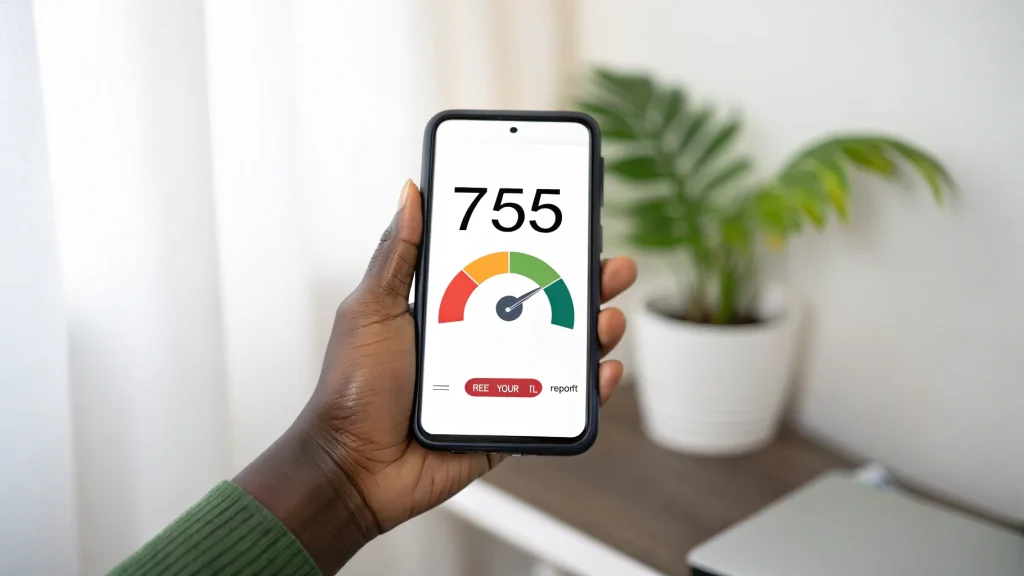The newly approved Consumer Credit Nigeria scheme by President Bola Tinubu aims to transform the way working Nigerians access credit. This initiative promises to enhance financial opportunities for many, making it easier to improve quality of life through responsible borrowing.
Introduction to the Consumer Credit Nigeria Scheme
The Consumer Credit Nigeria scheme is a groundbreaking initiative aimed at empowering the working class in Nigeria. This programme is designed to make it easier for individuals to obtain loans for various personal needs, from purchasing a car to improving their homes. By providing easier access to credit, the government is hoping to enhance the quality of life for many Nigerians.
Understanding the Concept of Consumer Credit Nigeria
At its core, consumer credit refers to the ability to borrow money for personal use. Unlike traditional loans, consumer credit is often used for smaller purchases, like electronics or furniture. This type of credit allows individuals to buy now and pay later, making it a practical choice for many.
In Nigeria, consumer credit has the potential to change how people manage their finances. It encourages responsible borrowing and helps individuals make significant purchases without the immediate financial burden. This is a shift from the previous norm where many had to rely solely on savings.
The Importance of Income in Loan Eligibility
A key factor in the Consumer Credit Nigeria scheme is income. Lenders want to ensure that borrowers can repay their loans. This means that having a stable source of income is crucial. Whether you’re employed or running your own business, proving your income is essential.
- Stable Employment: Regular income from a job shows lenders that you can manage repayments.
- Business Income: For entrepreneurs, consistent earnings from your business can also qualify you for loans.
- Financial Assessment: Lenders will assess your income against your expenses to determine how much you can borrow.
How the Consumer Credit Nigeria Scheme Will Operate
The Consumer Credit scheme will operate through a structured process. It involves both government oversight and partnerships with financial institutions like banks. Here’s how it will work:
- Application: Interested individuals will apply through designated platforms.
- Verification: Lenders will verify income and other financial details.
- Loan Approval: Once approved, borrowers can access funds for their intended purchases.
- Repayment Plans: Borrowers will receive clear repayment plans to manage their loans responsibly.
The Role of CreditCorp in the Scheme
CreditCorp is the government agency responsible for administering the Consumer Credit Nigeria scheme. This agency will work closely with financial institutions to ensure the smooth operation of the program. Their roles include:
- Monitoring Applications: CreditCorp will oversee the application process to maintain transparency.
- Data Management: They will manage borrowers’ data to assess creditworthiness.
- Partnership with Banks: CreditCorp will collaborate with banks to facilitate loan disbursement.
Registration Process for Interested Nigerians
If you are interested in benefiting from the Consumer Credit Nigeria scheme, the registration process is straightforward. Here’s what you need to do:
- Visit the Official Website: Start by going to the designated online platform for the scheme.
- Fill Out the Application Form: Provide accurate information regarding your income and employment status.
- Submit Required Documents: Be ready to upload any necessary documents that validate your application.
- Wait for Verification: CreditCorp will review your application and verify your information.
Remember, registration is free. There’s no need to pay any fees to apply for this programme. This initiative is aimed at helping as many working Nigerians as possible.
The Benefits of a Consumer Credit Nigeria Reporting System
A robust credit reporting system is essential for the success of the Consumer Credit Nigeria scheme. It brings several benefits that can positively impact both borrowers and lenders.
1. Enhanced Trust Between Lenders and Borrowers
When lenders have access to a comprehensive credit report, they can make informed decisions. This transparency builds trust, as borrowers know their credit history is being fairly assessed.
2. Improved Access to Credit
With a reliable credit reporting system, more individuals can qualify for loans. This means more Nigerians can buy homes, cars, and other essential goods without needing to save up first.
3. Encouragement of Responsible Borrowing
Credit reports hold borrowers accountable. When people know their borrowing habits are being monitored, they are more likely to borrow responsibly and make timely repayments.
4. Financial Literacy and Awareness
As borrowers engage with their credit reports, they become more aware of their financial health. This can lead to better money management and financial planning.
5. Economic Growth
When more people have access to credit, it stimulates spending and investment. This can lead to increased economic activity, benefiting the entire country.
Potential Challenges and Concerns of the Consumer Credit Nigeria Scheme
While the benefits are clear, there are also challenges to consider. Understanding these issues can help in addressing them effectively.
1. Data Privacy and Security
Handling sensitive financial information raises concerns about data privacy. It’s crucial to implement strong security measures to protect borrowers’ data from breaches.
2. Fraudulent Activities
There is always a risk of fraud in any lending system. Identity theft and false applications could undermine the integrity of the Consumer Credit Nigeria scheme.
3. Lack of Awareness
Many Nigerians may not fully understand how the credit system works. This could lead to confusion and reluctance to engage with the scheme.
4. Implementation Challenges
Setting up a new credit reporting system requires significant resources and coordination. Delays or mismanagement could hinder the scheme’s success.
The Target Audience and Implementation of the Consumer Credit Nigeria Timeline
The Consumer Credit Nigeria scheme primarily targets the working class. This includes both employed individuals and self-employed entrepreneurs.
1. Priority Groups
- Formal Employees: Those with stable jobs who can provide proof of income.
- Small Business Owners: Entrepreneurs who can demonstrate consistent earnings.
- Freelancers: Individuals with irregular income but a reliable track record of financial management.
2. Implementation Timeline
The scheme will roll out in phases. Initial targets may focus on specific regions or sectors before expanding nationwide.
- Phase 1: Awareness and registration campaigns to educate potential borrowers.
- Phase 2: Launch of the application process for loans.
- Phase 3: Full-scale operation with ongoing assessments and improvements.
Fraud and Security Measures in the Consumer Credit Nigeria Scheme
Security is paramount in the Consumer Credit Nigeria scheme. Here are some measures that can be implemented to prevent fraud:
- Identity Verification: Ensure all applicants provide valid identification documents. This helps to confirm their identity and mitigate the risk of impersonation.
- Secure Data Storage: Use encryption and secure servers to protect sensitive information. Regular audits can help maintain data integrity.
- Regular Monitoring: Implement continuous monitoring of applications and transactions to detect any suspicious activity early.
- Public Awareness Campaigns: Educate the public about potential fraud schemes. Awareness can empower individuals to protect themselves and report suspicious activities.
Long-term Vision and Future Improvements of the Consumer Credit Nigeria Scheme
The ultimate goal of the Consumer Credit Nigeria scheme is to create a sustainable credit ecosystem. Here’s how this vision can be achieved:
1. Continuous Evaluation
Regular assessments of the scheme’s performance will help identify areas for improvement. Feedback from users can provide valuable insights.
2. Expansion of Services
As the scheme matures, consider expanding services to include financial education programs, helping borrowers understand credit management.
3. Collaboration with Financial Institutions
Building strong partnerships with banks and microfinance institutions can enhance service delivery and increase loan accessibility.
4. Adoption of Technology
Utilizing advanced technology, like AI and machine learning, can streamline processes and improve credit scoring accuracy.
What you can expect from the Consumer Credit Nigeria Scheme
The Consumer Credit Nigeria scheme is a promising initiative that can transform the financial landscape for working Nigerians. By understanding its benefits, challenges, and long-term vision, we can collectively work towards a more inclusive credit system.
Now is the time to engage with this scheme. Whether you’re a potential borrower or a stakeholder in the financial sector, your participation is crucial. Let’s embrace this opportunity and make Consumer Credit Nigeria a success!
I have 13 years of experience in customer service at one of Brazil’s largest banks, including 5 years as a general branch manager. I am a specialist in banking products and services with a proven track record in team leadership and business development. I am also a holder of Brazilian certifications CPA-10 and CPA-20.



